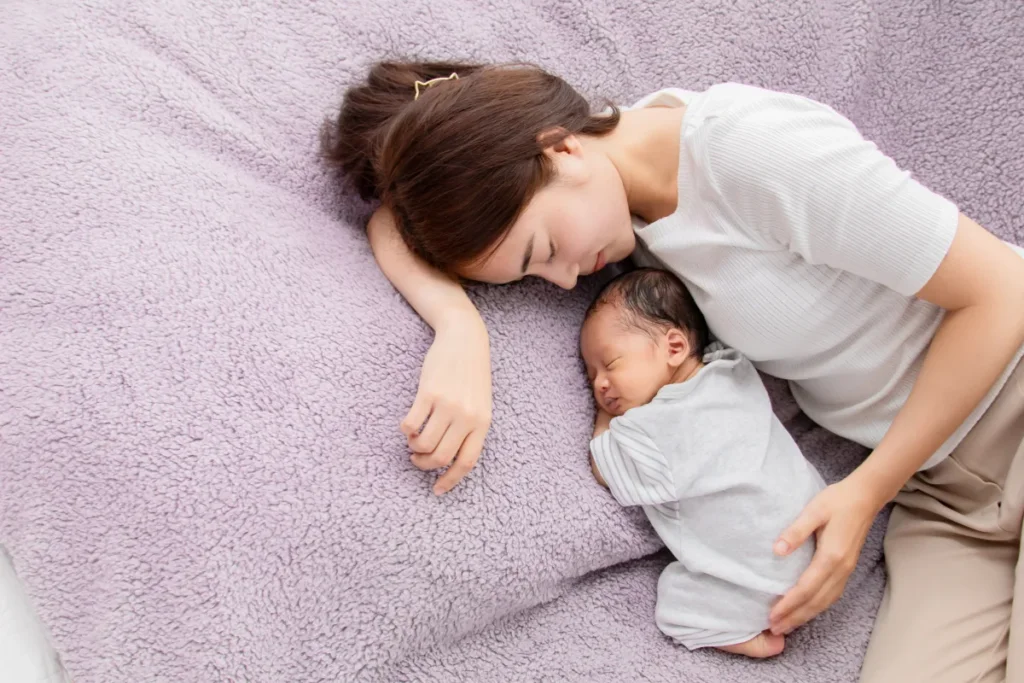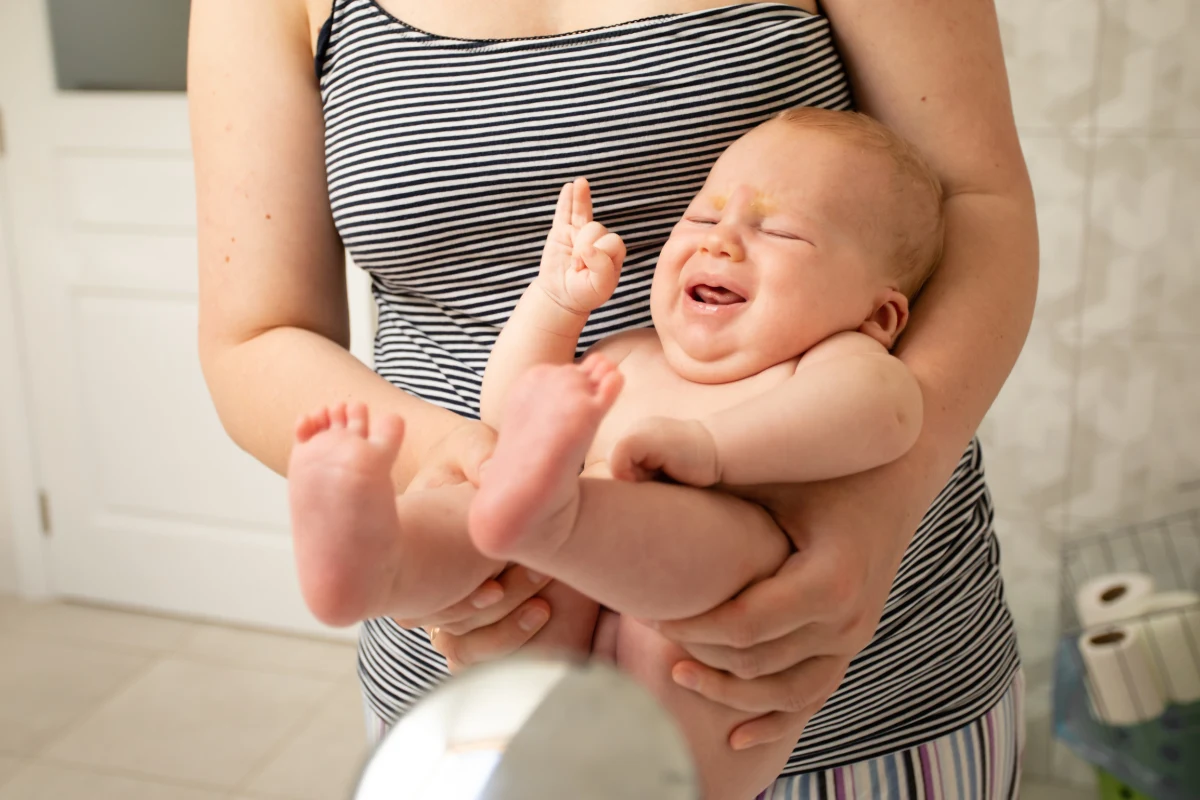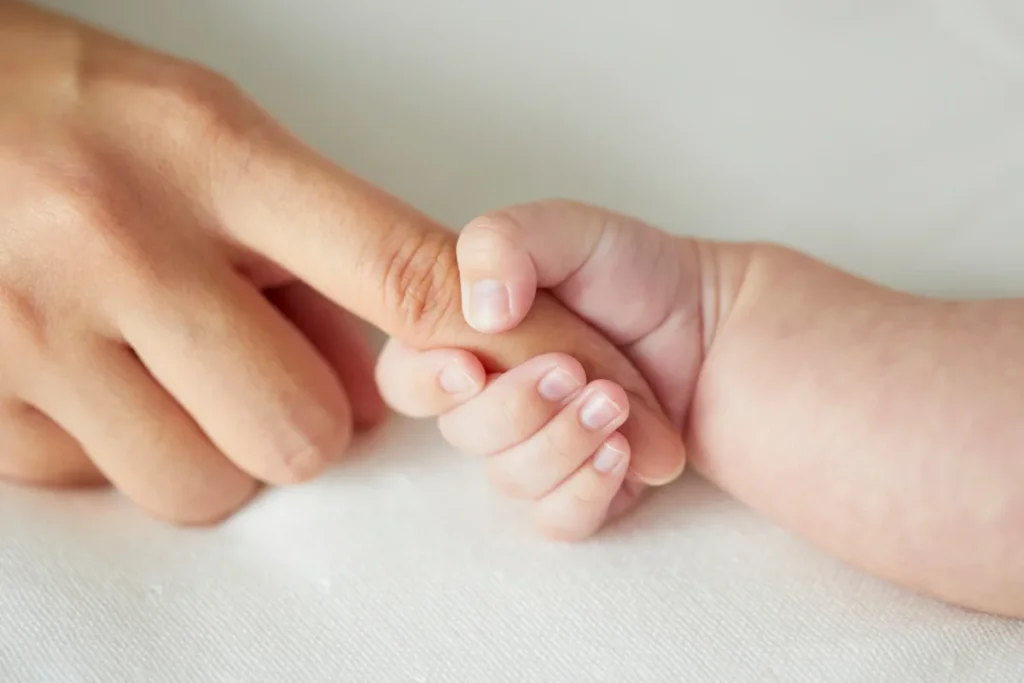Bringing home a newborn is exciting but can feel overwhelming. Don’t worry! Our Top 10 Essential Tips for Newborn Baby Care will guide you through the first month with simple, practical advice. From feeding and safe sleep to bonding and hygiene, these tips will help you keep your baby healthy and happy while you gain confidence as a new parent.

Here is Top 10 Essential Tips for Newborn Baby Care
1. Master Breastfeeding Basics
Breastfeeding is one of the best ways to nourish your newborn and build a strong bond. In the first month, feed your baby on demand, usually every 2-3 hours, or 8-12 times in 24 hours. Ensure a proper latch—your baby’s mouth should cover most of the areola, not just the nipple. If breastfeeding is painful or difficult, consult a lactation expert or your doctor.
Keep yourself hydrated and eat nutritious food to maintain your milk supply. If you’re formula-feeding, choose a formula recommended by your pediatrician and follow the instructions carefully.
2. Practice Safe Skin-to-Skin Contact for Newborn Baby Care
Holding your baby skin-to-skin, especially right after birth, helps regulate their temperature, heart rate, and breathing. It also promotes bonding and can make breastfeeding easier. Place your baby, wearing only a diaper, on your bare chest and cover them with a light blanket.
Do this daily for at least an hour, especially in the first few weeks. It’s a simple way to comfort your baby and make them feel secure.
3. Learn How to Hold Your Baby Correctly
Newborns have fragile necks because their head is heavy compared to their body. Always support your baby’s head and neck when holding them. Cradle them in your arms with one hand under their head and the other under their bottom.

Avoid holding a newborn under their armpits or letting their head dangle. When picking them up, slide one hand under their head and the other under their body for gentle support. Never shake a baby, as it can cause serious harm.
4. Keep Hygiene and Cord Care Simple
Your baby’s umbilical cord stump usually falls off within 1-3 weeks. Keep it clean and dry to prevent infection. Fold the diaper below the stump to avoid irritation, and avoid tub baths until the stump falls off. Clean the area with a damp cloth if needed, but don’t use alcohol unless advised by your doctor.
For general newborn baby care hygiene, sponge-bathe your baby 2-3 times a week with warm water and mild baby soap. Always wash your hands before handling your newborn to keep germs away.
5. Regulate Your Baby’s Temperature for Baby Care
Newborns can’t control their body temperature well. Dress them in one more layer than you’re wearing. For example, if you’re comfortable in a t-shirt, your baby might need a onesie and a light blanket.
In cold weather, use a hat to keep their head warm. Check for overheating—sweaty necks or flushed cheeks mean they’re too warm. Keep their room at a comfortable 68-72°F (20-22°C) and avoid placing them near drafts or heaters.
6. Understand and Respond to Crying
Crying is your baby’s way of communicating. Common reasons include hunger, a dirty diaper, tiredness, or discomfort. Check their diaper, offer a feed, or try soothing techniques like rocking or swaddling.

Sometimes, babies cry for no obvious reason. Stay calm, as your baby can sense your stress. If crying persists or seems unusual (like a high-pitched scream), contact your pediatrician. Learning your baby’s cues takes time, so be patient. Please follow all these newborn baby care tips to keep you newborn baby healthy.
7. Ensure Safe Sleep Practices
Safe sleep reduces the risk of Sudden Infant Death Syndrome (SIDS). Always place your baby on their back to sleep, on a firm mattress with no pillows, blankets, or toys. Use a fitted sheet in a crib or bassinet.
Keep the sleep area smoke-free and avoid co-sleeping in your bed, as it increases risks. Swaddle your baby snugly for comfort, but stop swaddling once they show signs of rolling over, usually around 2-3 months.
8. Change Diapers Frequently
Change diapers for newborn baby careNewborns need 8-12 diaper changes a day. Check diapers every 2-3 hours or after feeding. Use fragrance-free wipes or a damp cloth to clean the diaper area, wiping front to back for girls to prevent infections.
Apply a barrier cream if you notice redness to prevent diaper rash. Always have a clean diaper ready before starting, and wash your hands after each change. Cloth or disposable diapers are both fine—choose what works for you.
9. Bond Through Talking and Touch
Talking, singing, or reading to your baby helps their brain develop and strengthens your bond. Even if they don’t understand words, your voice soothes them.

Gentle massages after a bath can also relax your baby and improve their sleep. Use a fragrance-free baby oil or lotion and softly stroke their arms, legs, and back. These moments of connection are precious and help your baby feel loved.
10. Schedule Regular Health Check-ups
Your baby needs regular check-ups in the first month to monitor growth, development, and any health concerns. Most babies have a check-up within 3-5 days after birth, then at 2 weeks and 1 month. These visits include weight checks, vaccinations (like the hepatitis B shot), and screenings for conditions like jaundice.
Watch for signs of jaundice—yellowish skin or eyes—and contact your doctor if you notice it. Always reach out to your pediatrician if you’re worried about your baby’s health.
Tips for New Moms for Newborn Baby Care
- Rest when your baby sleeps: You need energy to care for your newborn, so nap when you can.
- Accept help: Let family or friends assist with chores or meals so you can focus on your baby.
- Trust your instincts: Every baby is different, and you’ll learn what works best for yours.
- Avoid unsafe holding habits: Don’t hold your baby while cooking or carrying hot items, and never leave them unattended on a high surface.
Conclusion
Caring for a newborn is a big responsibility, but it’s also a beautiful journey. Focus on meeting your baby’s basic needs: food, warmth, cleanliness, and love. Newborn baby care can feel overwhelming, but take it one day at a time, and don’t hesitate to ask for help from your doctor, family, or friends. With these 10 essential tips, you’ll feel more confident keeping your newborn healthy and happy in their first month at home.
You May Also Like
FAQs on Newborn Baby Care
Q. How do I care for a newborn in the first month?
Ans. Feed your baby every 2-3 hours (8-12 times daily). Put them to sleep on their back in a crib. Change diapers 8-12 times a day. Keep the umbilical cord stump dry. Hold their head gently. Keep them warm (68-72°F). Visit the pediatrician for check-ups.
Q. What is the newborn 2-hour rule?
Ans. Feed your baby every 2 hours during the day to help them grow and stay hydrated. If they sleep longer, gently wake them. At night, 3-4 hours is okay if the doctor agrees.
Q. How do I clean the umbilical cord stump?
Ans. Keep the stump dry and fold the diaper below it. Clean with a damp cloth if dirty, then pat dry. Don’t use alcohol unless the doctor says to. Call the doctor if it’s red or has pus.
Q. Where do newborns sleep?
Ans. Newborns sleep in a crib or bassinet on their back with a firm mattress and fitted sheet. No pillows or toys. Swaddle them until they roll over (2-3 months).
Q. How many diapers does a newborn use a day?
Ans. Newborns use 8-12 diapers a day. Check every 2-3 hours and change after feeding to keep them clean and avoid rashes.





